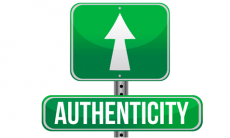You just can’t win, say many CEOs. Take a stand on almost any socio-economic issue today and you will delight many, but offend others. While our society has become so polarized and reactive, there is also a growing desire by most consumers, employees and investors for CEOs to take more proactive action to improve society.
The dynamics of any journey to build trust and credibility are often confusing and conflicting. The latest Edelman Trust Barometer study found that the credibility of CEOs reached an all-time low of 37% in 2017, although it jumped up to 44% in 2018, followed by a rating of 41% for Boards of Directors and 35% for Government officials, at the lowest. Underlying this critical issue of credibility is the biggest decline in average trust in institutions, from 52% to 43% in 2018.
Partisanship is sharp and ubiquitous, involving Democrats versus Republicans, liberals versus conservatives, coastal America versus the middle, and even the “mass population” versus those who are considered the “informed public” (i.e. higher income, college-educated and highly-informed on business and public matters). Edelman reported that the informed public trusts the institutions of government, business and media by 21 points more than the mass population. No wonder that more than half of Edelman’s respondents feel that the “system is broken”.
In early July, the annual survey by the American Banker/Reputation Institute showed that the reputation of banks fell in 2018 for the first time in five years. Bradley Hecht from the Reputation Institute said “there has been a global erosion of trust around corporations”. The report stated that among the factors behind this decline, much of the negativity was focused on bank CEOs; the specific problem is that CEOs are largely invisible to most consumers. It also concluded that “it is more important than ever for banks to demonstrate a sense of social responsibility…. and bank CEOs are the single best voices to deliver that message”.
The societal position of the CEO can indeed have a major effect on consumer purchases. A recent survey by Weber Shandwick, a PR firm, and KRC Research found that 45% of Americans do not buy products or services from companies with CEOs who hold social stances they disagree with. Conversely 40% would reward companies whose CEOs’ views correspond to their own.
So what can a CEO do to surmount these huge challenges of partisanship and brand trust? Fortunately there is an emerging demand by the public for CEOs to become more visible and proactive, as more people expect CEOs to fill the gap left by government to help effect social change, as reported by Edelman:
- 79% of respondents say that the visibility of the CEO is very important, and for the CEO to share the company’s purpose and vision.
- Also 74% agree that the CEO should be personally visible in discussing how the company has benefited society.
Furthermore specific action was identified by Edelman respondents on how a CEO can build trust: (1) lead with purpose and live the company’s values, (2) be authentic and engage in relevant issues, and (3) share knowledge internally and externally to galvanize employees on what matters to them.
The essence of good branding is all about creating a strong emotional bond with customers, and in today’s world, this includes employees, investors and other stakeholders. Hence the rise of “purpose-driven brands” which offer enormous potential for customers to feel proud, become more loyal and trust a company that is focused on behavior that benefits society. A survey earlier this year by Cone/Porter Novelli, reinforced the potential rewards of a purpose-driven brand:
- 79% of Americans are more loyal to purpose-driven brands than traditional brands
- Social media is important, as 68% say they are more willing to share content from purpose-driven companies versus traditional companies – e.g. on product information (66%), promotions and sales (64%) and a company’s mission (62%).
- 78% of consumers believe it is no longer acceptable for companies to just make money, as they expect companies to positively impact society as well.
This increasing recognition of the importance of the purpose of a company brand has added another fickle element behind the broadly accepted definition of “brand value” too, i.e. product quality/benefit divided by the price/cost. The perceived quality will always be important, but it is a function mainly of rational thinking. On the other hand, a purpose-driven brand can create that emotional connection to gain the hearts and passions of consumers, which has been determined by neuroscientists to be the most important driver for consumer purchases.
The Cone/Porter Novelli study supports this associated sentiment for a brand with a clear societal purpose. When asked to choose between a purpose-driven brand, a low-cost brand, and a quality brand, 50% said they would have a more positive emotional connection with a purposeful company, when compared to a brand leading with quality (30%) or a low-cost proposition (20%).
No CEO or brand could ever please all its customers or stakeholders, and not taking any stand today would likely be a doomed choice (56% of all Edelman respondents say they have no respect for CEOs who remain silent on important issues), so the obvious answer is to become more proactive for restoring brand trust by initiating programs that benefit society, are authentic and are aligned with company values.





